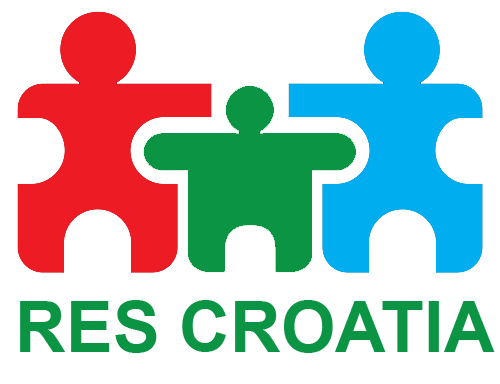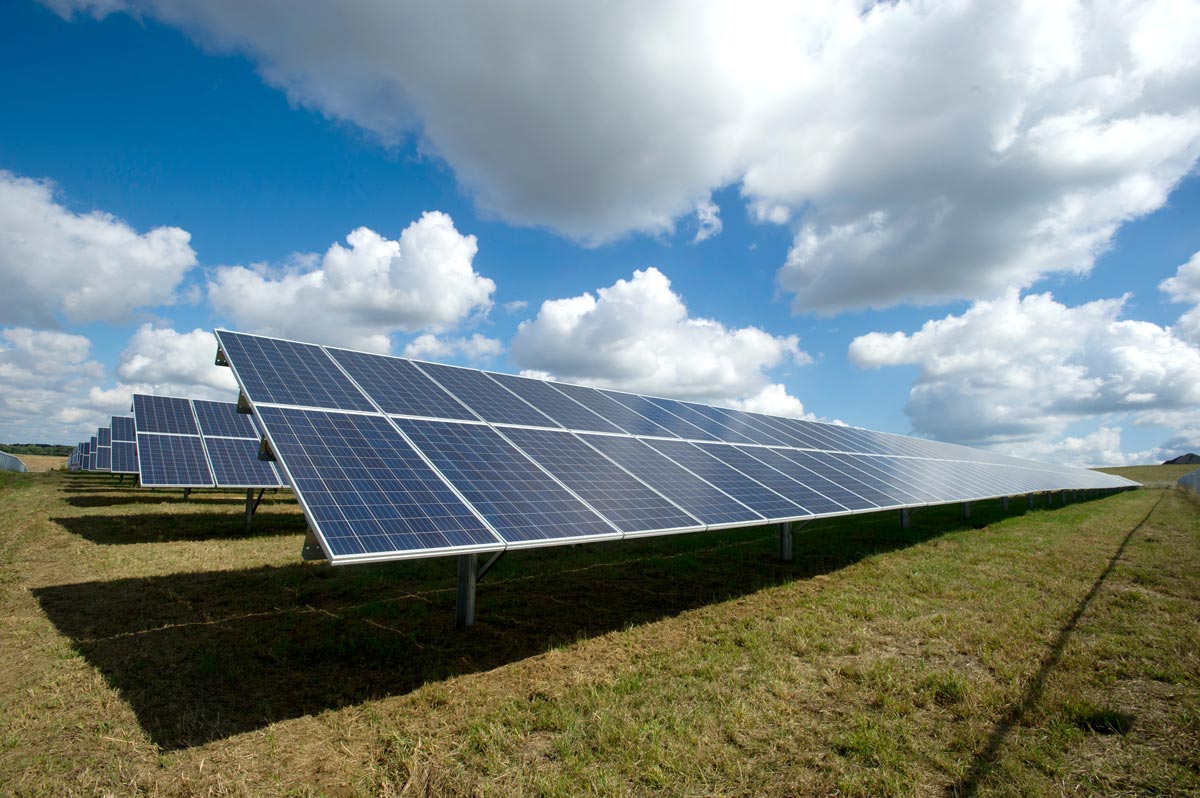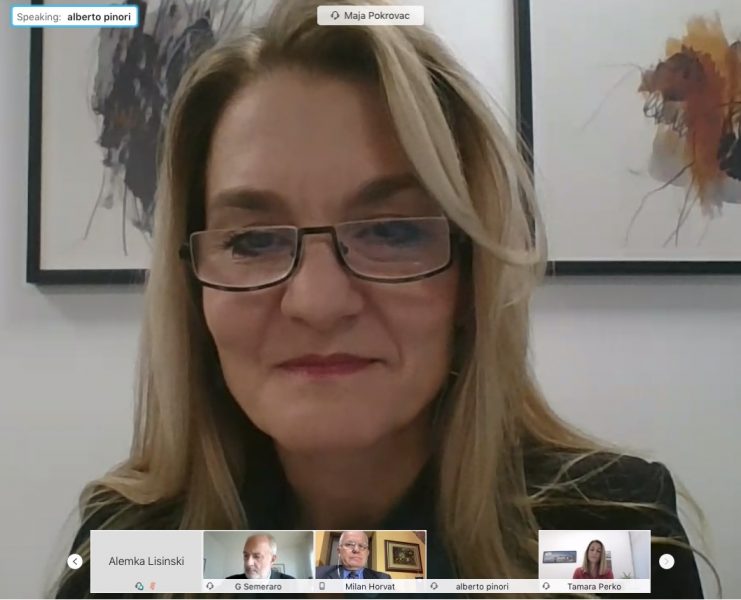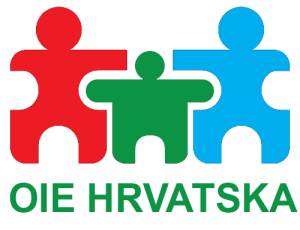At the Conference on Italian-Croatian Cooperation and Financing of Economic Development, held on Friday, 11 December in the organization of the Croatian National Bank (HNB) and the Embassy of the Republic of Italy, the director of Renewable Energy Sources of Croatia (OIEH), Maja Pokrivac, moderated the panel on energy and business. The participants of the panel included Tamara Perko, (CEO of HBOR), Milan Horvat, (chairman of the executive board of FIMA Invest), Alberto Pinori, (chairman of the association of RES sector companies ANIE Rinnovabili) and Giambattista Semeraro, (project manager of the development of industrial pants FATA EPC). The OIEH director emphasized the great efforts undertaken by the private sector in putting in motion RES projects in Croatia in the last fifteen years and underlined the need of developing new business models for the future development of the sector. She singled out the activities OEIH is undertaking in that regard, pointing out the importance of communication and education on significant topics which include the financing of projects within the framework of the new premium system. She spoke with the panel participants about the new business possibilities, required measures, and reforms for accelerating the development of renewable energy and financial instrument as support to the energy transition and realization of the Green Plan.
Milan Horvat, chairman of the executive board of FIMA Invest noted that in the last ten years the situation in the energy sector has drastically changed and RES has become cheaper and of greater interest to investors. He gave the premium system high marks and said that many private investors are now seeking possibilities for investing in the RES sector. He sees numerous possibilities for financing RES projects, not only through the banks but also through new models with private funds, and announced that FIMA is preparing an energy fund that should be ready in the first quarter of 2021. He envisaged that in the next few years more attention will be devoted to this than ever before and that in the next decade the energy sector will take the lead. He pointed out that a sound financing system requires education and understanding processes in the RES sector, and sees electric mobility as a segment that requires development in Croatia. Alberto Pinori, chairman of the association of RES sector companies ANIE Rinnovabili, shared experiences of financing the RES sector in Italy. After a period in which from 2007 onwards the RES sector was financed according to FIT principles, a system based on tax reduction was introduced in Italy. Sustainability of which much is spoken today was not familiar to people before, however, in the Covid-19 pandemic circumstances, everyone became aware of its importance – in all sectors including the energy sector. He noted that the Corona crisis actually created an opportunity – the funds available for investments in RES projects should be used appropriately. He sees bureaucracy which on multiple levels slows down and hinders the realization of projects as the greatest challenge and emphasized the necessity of reforms.
Tamara Perko, the CEO of HBOR, confirmed that sustainability was an incomprehensible notion for many only a year ago which she personally witnessed while today sustainability is the core of European and national documents on the implementation of which HBOR communicates daily with the ministries and the European Commission. She noted that activities that are not in compliance with the principle of sustainability and the climate plan will not be financed. In the context of issues related to preparations for new a investment cycle and transition to the premium system, she emphasized the importance of education on the topic and commended the activities undertaken to that effect by OIEH. She also pointed out the difference between a project and corporate financing, whereby corporate financing is a greater risk for banks as well as the need for additional analyses and understanding of new conditions, enhancement of internal procedures, capacities, and knowledge.
Giambattista Semeraro, project director for the development of new industrial plants FATA EPC, who has experience in participating in projects in Croatia, spoke of the solar plant projects implemented in Italy as innovative models with storage of energy in batteries and water. They are open for similar projects in Croatia and see Dalmatia as an interesting area in that regard.
In conclusion, everyone agreed that there is a lot of work to be done on all sides and that the bases of participating in the new RES sector investment cycle are information, communication, and education along with the cooperation of all stakeholders. Only in this way will everyone be clear as to what and how they can and should do in order to fulfill common national and European objectives.











